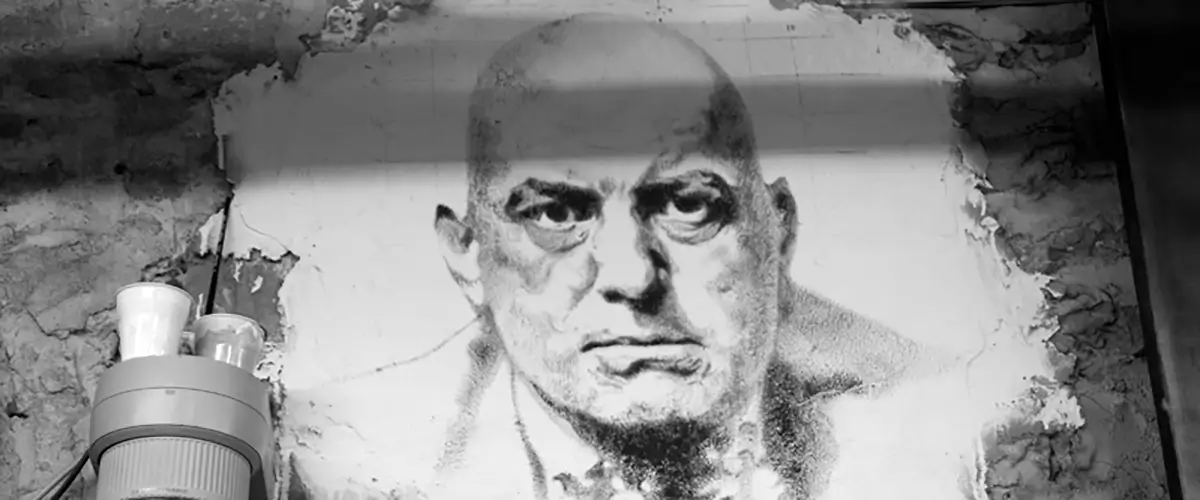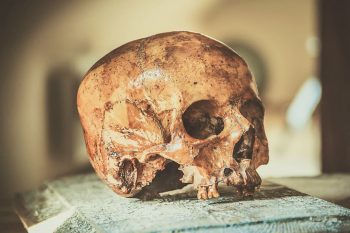What is Thelema?
Thelema is a religious and philosophical system that was founded in the early 20th century by the English writer and occultist Aleister Crowley.
The central tenet of Thelema is the idea of “Do what thou wilt shall be the whole of the law.” This principle expresses the belief that each individual has the right to determine their own destiny and pursue their own true will or purpose in life.
Thelema also places an emphasis on spiritual growth and the attainment of self-realization through practices such as meditation and magick to deepen their connection to the divine and to achieve a state of spiritual advancement. Many practitioners see it as a way to gain greater understanding of themselves and the world around them.
Crowley was a highly influential figure in the late 19th and early 20th centuries and was a member of several esoteric orders, including the Hermetic Order of the Golden Dawn and the Ordo Templi Orientis. His work on Thelema drew on a wide range of esoteric and mystical traditions, including Hermeticism, Kabbalah, and Yoga, and was intended to provide a comprehensive system of spiritual development.
Do people still practice Thelema?
Today, there are still people who practice Thelema. It continues to be a vibrant spiritual movement, with a small but dedicated following around the world. While it is often associated with Crowley and his writings, many Thelemites interpret the teachings of Thelema in their own way and incorporate elements from other spiritual and philosophical traditions into their practice.
While the number of followers is relatively small compared to other spiritual or religious movements, Thelema has a dedicated and passionate community of practitioners estimated to be in the thousands. These practitioners often see Thelema as a living tradition that is constantly evolving and adapting to the needs of modern individuals seeking spiritual growth and self-realisation.
In addition to individual practitioners, there are also organizations and communities that are dedicated to the study and practice of Thelema, such as the Order of Thelemic Knights and the Thelemic Union. These organizations often provide support and resources for individuals who are interested in exploring Thelema and its teachings.
Symbols of Thelema
The symbols used in Thelema are an important part of its system of beliefs and are often used to represent its concepts and principles. Some of the most commonly used Thelema symbols include:
-
The Unicursal Hexagram: This is a six-pointed star that is created by overlaying two overlapping triangles. It is often used to represent the union of the microcosm (the individual self) and the macrocosm (the universe).
-
The Eye of Horus: This is an ancient Egyptian symbol that represents the eye of the god Horus. In Thelemic belief, it symbolises the all-seeing and all-knowing nature of the divine.
-
The Ankh: This is another ancient Egyptian symbol that represents life and is often used to represent the idea of eternal life or spiritual enlightenment.
-
The Egyptian Scarab: This is a beetle that was associated with the sun god in ancient Egypt and was seen as a symbol of renewal and rebirth.
-
The Serpent: In Thelemic belief, the serpent is often used to represent wisdom and knowledge.
-
The Wand, Cup, Sword, and Disk: These are the four primary tools of the magician in Thelemic belief, and they represent different aspects of the self and the universe. The wand represents the element of fire, the cup represents water, the sword represents air, and the disk represents earth.
The use of symbols in Thelema is highly individualistic and can vary greatly from person to person. The symbols mentioned above are simply some of the most commonly used and recognised symbols in Thelemic belief.

